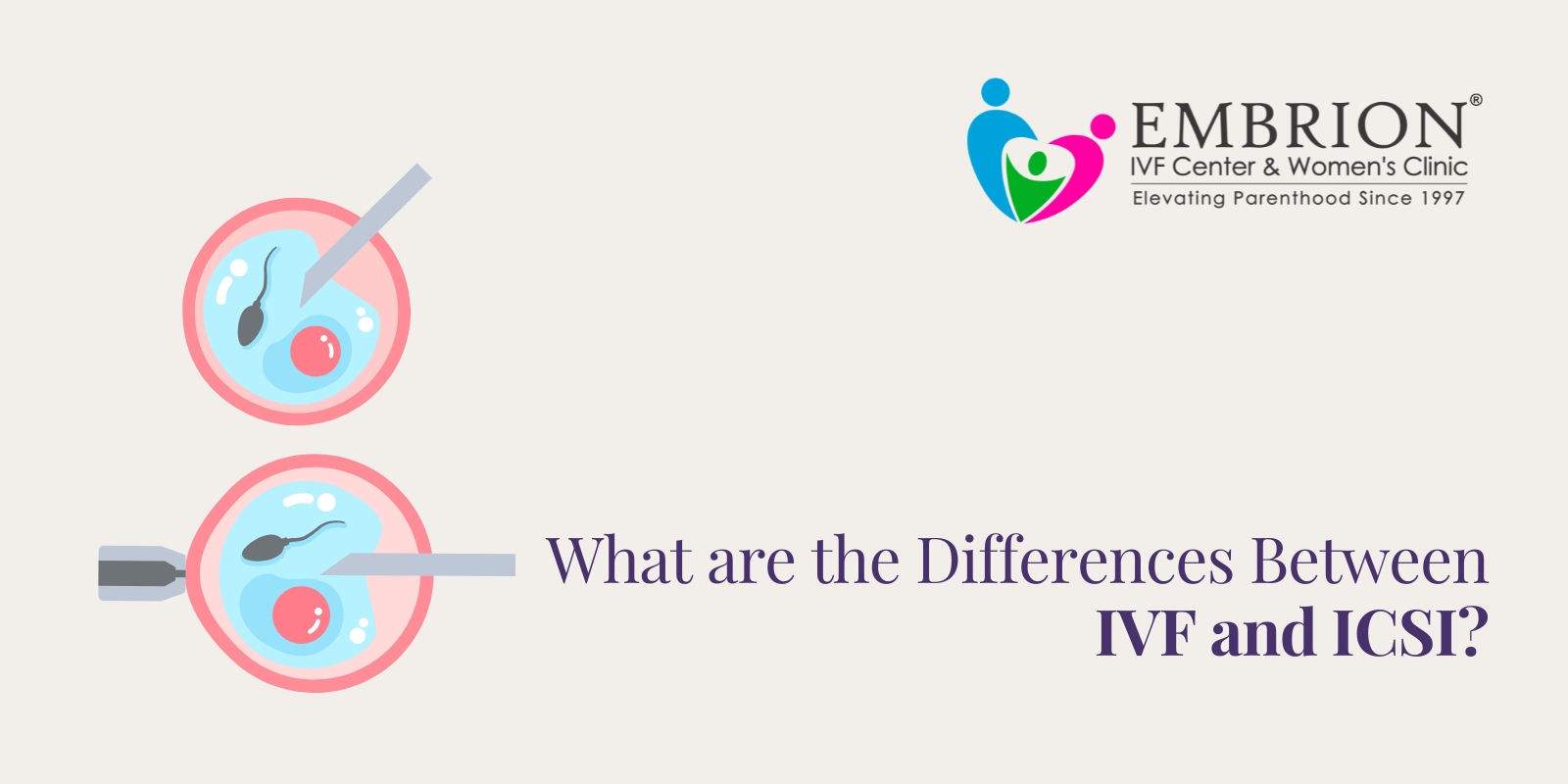Becoming a mom is a beautiful journey, but sometimes, the road to the destination isn't as easy as we hoped. With the advancement of medical science, more and other ways are available for varied couples to become possible parents despite their facing infertility. Due to advancements in modern medical science, two of the most common fertility treatments are In Vitro Fertilization (IVF) and Intracytoplasmic Sperm Injection (ICSI).

Embrion IVF Clinic has many successful treatments and is known for the best IVF and ICSI Treatment in Ahmedabad. However, which is the best choice for you, and what are some key differences? For that, it is so important to know the differences for you to be able to decide on your fertility treatment.
This blog will compare and know the difference between IVF and ICSI methods, success rates, and the most suitable candidates.
IVF (In Vitro Fertilization) and ICSI (intra-cytoplasmic sperm injection) are two such advanced fertility treatments to address the problems related to infertility issues faced by couples to bear a child. Though they overlap in some ways, key differences arise via ancestral sperm fertilizing the egg.
Many people know about in vitro fertilization (IVF), a common form of fertility treatment, where eggs and sperm are mixed outside the body, likely in the lab. It is achieved through natural fertilization when the sperm can meet an egg and develop embryos located in the woman´s uterus.
In comparison, ICSI is a much-localised process. ICSI is where a healthy sperm is picked up with the best equipment and placed into an egg, under a microscope. The ICSI treatment technique has been created considering male infertility issues or when general IVF methods have not functioned.
Now, let’s dive deeper into how these two procedures differ.
Typically, IVF is suggested when :
Female infertility (blocked fallopian tubes or endometriosis).
A couple who are experiencing unexplained infertility after tests
The man and woman have tried fertility medications or intrauterine insemination (IUI) treatment before, but they have not been successful.
Female partner has ovulation difficulties, for example, Polycystic Ovary Syndrome (PCOS)
Genetic testing before the embryo goes back into the uterus has a role in preventing the transmission of inherited genetic diseases.
For most modern couples, IVF is a brilliant answer in which both partners have normal fertility factors or if women play a major role.
ICSI is recommended in more concrete circumstances, including when :
Male infertility, Low sperm count, poor motility, or abnormal morphology.
Failed IVF where fertilization failed.
Sperm surgically retrieved (e.g. vasectomy, no sperm in ejaculate from male partner)
The sperm is frozen, making it incapable of motility after thawing. For genetic testing, the preference of the couple is to select one sperm so that it helps with the generation of healthy embryos.
ICSI, on the other hand, involves inserting a single sperm into an oocyte, so does NOT inhibit fertilization through binding, even in cases of poor-quality sperm.
| Aspect | IVF | ICSI |
|---|---|---|
| Fertilisation Process | Natural fertilisation in the lab | Direct injection of sperm into the egg |
| Sperm Requirement | Sperm must swim and penetrate the egg | Only a single sperm is needed |
| Best for | Female infertility, unexplained | Male infertility, poor sperm quality |
| Success Rate | 35-50% depending on age/health | Similar to IVF but higher fertilisation rate |
| Commonly Used | Blocked tubes, endometriosis, etc. | Male factor infertility, failed IVF |
IVF and ICSI are excellent treatments for female infertility, but the results also depend on individuals such as :
Age of women : Women under 35 have higher success rates. Many other factors also affect the Success Rates.
Quality of eggs and sperm : The better the quality, in particular egg quality, on account age of the women (and other factors), which diminishes as they get older.
The health of both partners : For couples experiencing sexual issues due to male infertility, ICSI may be a better option than IVF, depending on the health of both partners. However, for infertile couples without a male element, IVF is a viable therapeutic option.
It is important to know what type of fertility problem you have before choosing between IVF or ICSI. ICSI is an alternative that assists a couple in conceiving when they are dealing with male infertility or have had previous attempts at conception via IVF. The best way to evaluate whether an IUI, IVF, or tubal reversal is the right treatment for you?
Whether or not you choose IVF or ICSI, both treatments provide hope and adoptive parenthood. For a proper understanding of what is best in your situation visit Embrion IVF Clinic, the experts there will guide you best on the difference between IVF and ICSI. It is important to remember that there is no one-size-fits-all on the road to parenthood, and finding a solution that works for you can make all the difference.